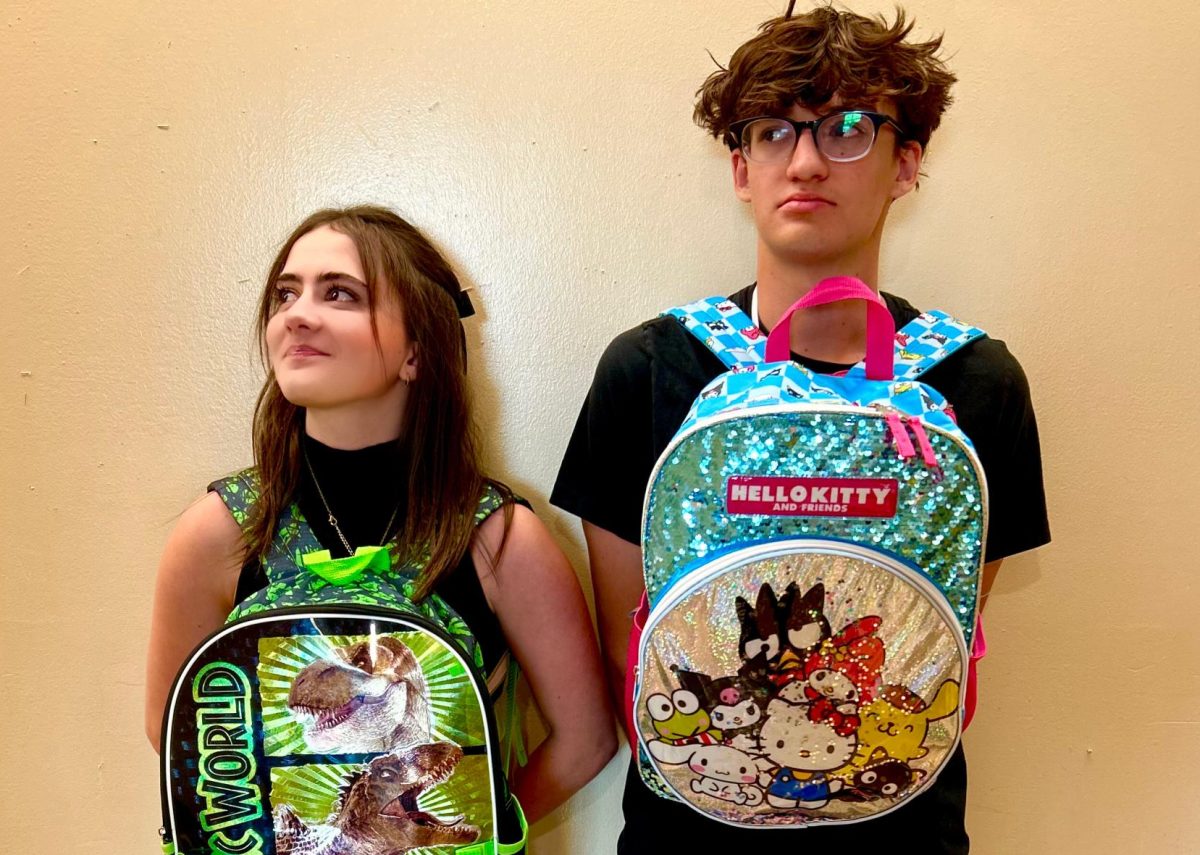Leaves are turning green, flowers are blooming and the weather is warming up. Going outside, swimming, hiking and other activities are becoming possible again; however, pollution is an active problem which could cause these activities to become impossible. According to Climate Change: Atmospheric Carbon Dioxide, from 2022 to 2023, the amount of carbon dioxide in the air has increased by 2.8 parts per million, or ppm, with an average of 421.08 ppm.
A study in 2022 done by the U.S. Energy Information Administration claimed that 20.01 million barrels of petroleum are consumed in the United States a day. One barrel is 42 U.S. gallons, or 159 liters. Additionally, a study in 2021, conducted by the National Oceanic and Atmospheric Administration (NOAA), showed that the United States produces five billion metric tons of carbon dioxide per year, although China is the largest climate polluter as of 2022, according to CNN.
While students cannot necessarily stop all pollution in the world, they can work to help be more resource-efficient in their own lives. Here are the top 5 ways to be more energy efficient.
1. Making Compost Bins
Compost is a way to get rid of waste, without causing too much waste itself. Put in crushed eggshells, vegetable scraps, grass clippings, plant cuttings, old flowers, weeds, used tea and coffee grounds. Websites like the United States Environmental Protection Agency and Better Homes and Gardens describe ways to make personal compost bins.
“I [compost] occasionally at my house,” Hayden Baker ‘25 said. Compost helps reduce greenhouse gasses and enriches the soil, which can allow for backyard gardens to thrive.
2. Public Transportation, Carpooling, and Non-Motorized Vehicles
Car emissions are responsible for 16.4% of greenhouse gas in the U.S., according to CATO Institute. If more people use public transportation and carpool, it reduces the amount of cars being used. Not only would fewer cars cause less emissions, but it would mean less gas being produced. Less gas used means less oil needed, causing less pollution from getting the oils out of the ground. Another way of preventing any emissions and fossil fuels from being used is using motorized vehicles. Biking, scootering, using skateboards, roller skates and rollerblades are all ways to move around without having emissions produced, and are common with younger children, as well as older ages.
“I take a scooter to school,” Owen Hubbard ‘24 said.
3. Reuse
Reusing different objects causes less waste. After the Plastic Pollution Reduction Act, stores in Colorado charged 10 cents per plastic bag to reduce waste, however, other states don’t follow the same law. In any case, reusing plastic bags, or purchasing reusable bags, are both ways to reduce waste. Plastic bags can be used in the smaller trash cans that are found in household bathrooms.
“[I] save my cardboard boxes and save all bags that I get from stores and stuff,” Brayden Klicka ‘25 said. Saving cardboard boxes are a way to have containers for recycling, that are also recyclable. According to The Denver Post, if you use plastic trash bags, instead of getting recycled, they become trash and go into landfills.
4. Reduce
Reducing the amount of waste produced can be done in many ways. Recycling, reusing different objects, using reusable objects and making compost bins are all ways to reduce the amount of waste being produced.
“Ms. Wills gave everyone that is part of AP Environmental Science a giant kit that has a lot of different energy preserving stuff, like LED light bulbs and a showerhead that doesn’t put out as much water,” Baker said. LED light bulbs reduce energy waste, which means less greenhouse gases will be produced to create energy. By converting 95% of the energy to light, rather than heat, according to How Does LED Lighting Help the Environment?. Meanwhile, incandescent lights only turn 2% of energy to light, according to Efficiency of LED vs. Incandescent Lights, proving LED are much more efficient.
5. Recycling
Recycling is a great way to prevent waste and it allows things like glass, cardboard, paper and aluminum cans to be made into something else, rather than them ending up in landfills or the ocean. Websites like Accepted for Recycling – City and County of Denver have information on what can be recycled, and what is prohibited.
“Ms. Wills tries to be really good about sending out Eco Club every Wednesday to recycle the whole school,” Baker said.





![April marks the 25th anniversary of Sexual Assault Awareness Month, created by the National Sexual Violence Resource Center (NSVRC). This month is to spread awareness of the harassment, assault and abuse that happens around the world. The symbol that represented the month was a teal ribbon; however, some survivors of assault create different symbols and movements like the TikTok trend in 2022, where survivors would tattoo Medusa on their body, in honor of her backstory in Greek Mythology. “I don't think [this month is known] at all. I rarely see anybody talk about it. I rarely see much of an emphasis on posting it online, or much discussion about it, and I feel like there needs to be way more discussion,” an anonymous source said. “I think just validating every experience that a person has gone through, regardless of the degree of it, the severity, is an essential step into making sure that people are aware that this is a very real problem in a society and that we need to do better in addressing it.”](https://rockmediaonline.org/wp-content/uploads/2025/04/IMG_0011-1200x900.jpg)



